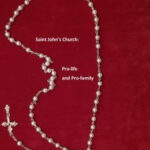The Gospel of John, chapter 12, verses 1-13, narrates a pivotal moment in the life of Jesus Christ, just days before his crucifixion. While verse 13 itself, John 12:13, specifically highlights the enthusiastic welcome Jesus received as he entered Jerusalem, understanding its full weight requires examining the surrounding verses and the broader context of Jesus’ ministry. This passage is rich with symbolism and foreshadowing, revealing crucial aspects of Jesus’ identity and mission.
The Setting: Bethany and the Dinner
Six days before the Passover, Jesus arrived in Bethany, a village known as the home of Lazarus, Martha, and Mary. This was Lazarus whom Jesus had famously raised from the dead (John 11), a miracle that had already drawn significant attention and increased belief in Jesus. In Bethany, a dinner was hosted in Jesus’ honor. Martha, known for her hospitality, served, while Lazarus was present as a guest. This dinner scene provides a stark contrast to the events that would soon unfold in Jerusalem. It’s a moment of fellowship and honor before the looming shadow of betrayal and suffering.
A significant event during this dinner is Mary’s anointing of Jesus. She took a pint of pure nard, an incredibly expensive perfume, and poured it on Jesus’ feet, wiping them with her hair. The fragrance filled the house, signifying the preciousness of this act of devotion. Judas Iscariot, one of Jesus’ disciples and the future betrayer, objected to this act, suggesting the perfume should have been sold and the money given to the poor. However, John clarifies Judas’s motive was not genuine concern for the poor but his own thievery. Jesus defended Mary, stating that she had kept this perfume for the day of his burial. This anointing is not just a display of love and worship; it’s a prophetic act foreshadowing Jesus’ death and burial, aligning with Jesus’ own understanding of his approaching fate.
The Triumphal Entry: John 12:13 and the Crowd’s Acclamation
The narrative then shifts to “the next day” (John 12:12), setting the stage for the event directly related to John 12:13: Jesus’ entry into Jerusalem. A large crowd, already in Jerusalem for the Passover festival, had heard of Jesus’ arrival. Learning he was on his way to Jerusalem, they went out to meet him. This was not a spontaneous gathering but a deliberate act of welcome and recognition.
John 12:13 describes the crowd’s actions: “They took palm branches and went out to meet him, shouting, ‘Hosanna! Blessed is he who comes in the name of the Lord! Blessed is the king of Israel!'” This verse is packed with meaning:
- Palm Branches: Palm branches were symbols of victory and royalty. Waving them indicated the crowd’s recognition of Jesus as a king. This was a significant public declaration of his royal status.
- “Hosanna!”: This Hebrew word means “save us!” or “deliver us!” It was a cry of praise and supplication, acknowledging Jesus as the Messiah who could bring salvation.
- “Blessed is he who comes in the name of the Lord!”: This phrase is quoted from Psalm 118:26, a Messianic psalm. It was a common acclamation for pilgrims entering Jerusalem, but in this context, it took on a deeper meaning, recognizing Jesus as the one sent by God.
- “Blessed is the king of Israel!”: This is the clearest declaration of the crowd’s belief that Jesus was the promised king, the Messiah who would reign over Israel.
This enthusiastic reception was a direct response to Jesus’ ministry and miracles, particularly the raising of Lazarus. The crowd wasn’t just celebrating a religious figure; they were hailing a king, fulfilling ancient prophecies and expressing their hopes for deliverance.
Deeper Significance and Context
The events surrounding John 12:13 are not isolated incidents but are deeply connected to the broader narrative of Jesus’ ministry and the unfolding plan of salvation.
- Fulfillment of Prophecy: Jesus entering Jerusalem on a donkey, as mentioned in John 12:14-15 (quoting Zechariah 9:9), was a deliberate act to fulfill prophecy. This wasn’t a king arriving in worldly power but in humility and peace, riding on a donkey’s colt. This symbolized a different kind of kingship, not of earthly dominion but of spiritual authority and service.
- Rising Opposition: While the crowds welcomed Jesus, the religious leaders, particularly the chief priests and Pharisees, were increasingly threatened by his growing popularity. As mentioned in John 12:10-11 and 19, they were already plotting to kill Lazarus and were frustrated that “the whole world has gone after him!” The triumphal entry, while a moment of public acclaim, also intensified the opposition against Jesus, setting the stage for the events leading to his crucifixion.
- Misunderstanding and True Kingship: Even the disciples initially didn’t fully understand the significance of these events (John 12:16). It was only after Jesus’ glorification (resurrection and ascension) that they grasped that these events were written about him and done to him according to God’s plan. The triumphal entry, therefore, is not just about earthly kingship but points towards Jesus’ ultimate glorification and his reign as the King of Kings in a spiritual and eternal sense.
Conclusion: The Enduring Message of John 12:13
John 12:13 encapsulates a powerful moment of recognition and anticipation. The crowd’s enthusiastic welcome, waving palm branches and shouting “Hosanna,” reveals a glimpse of Jesus’Messianic identity acknowledged publicly. However, this moment is also laden with irony and foreshadowing. The earthly kingship they anticipated was not the kingdom Jesus came to establish. His kingdom is not of this world.
The true significance of John 12:13 and the surrounding verses lies in understanding Jesus’ mission: to bring salvation through sacrifice. The triumphal entry is not just a celebration of a king, but a crucial step towards the cross. It is a reminder that true kingship, as demonstrated by Jesus, is rooted in humility, service, and love, ultimately leading to redemption for humanity. Reflecting on John 12:13 encourages us to consider the true nature of Jesus’ kingship and our response to his call.

